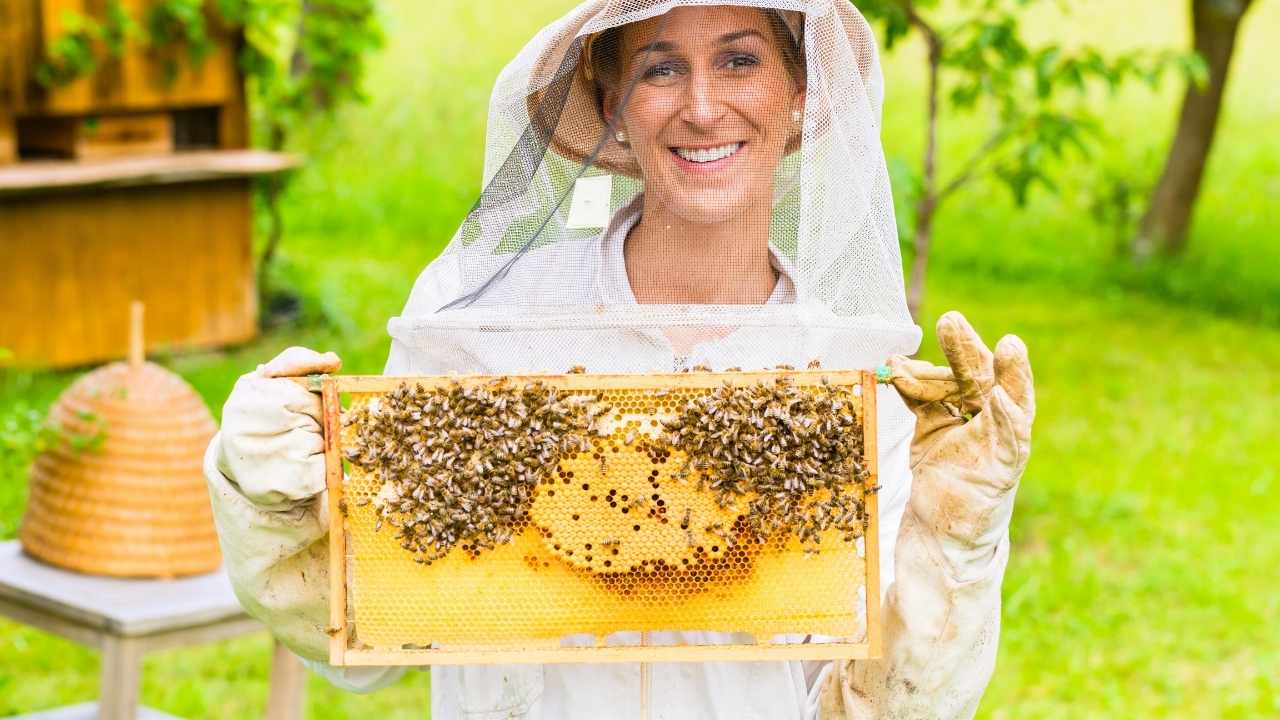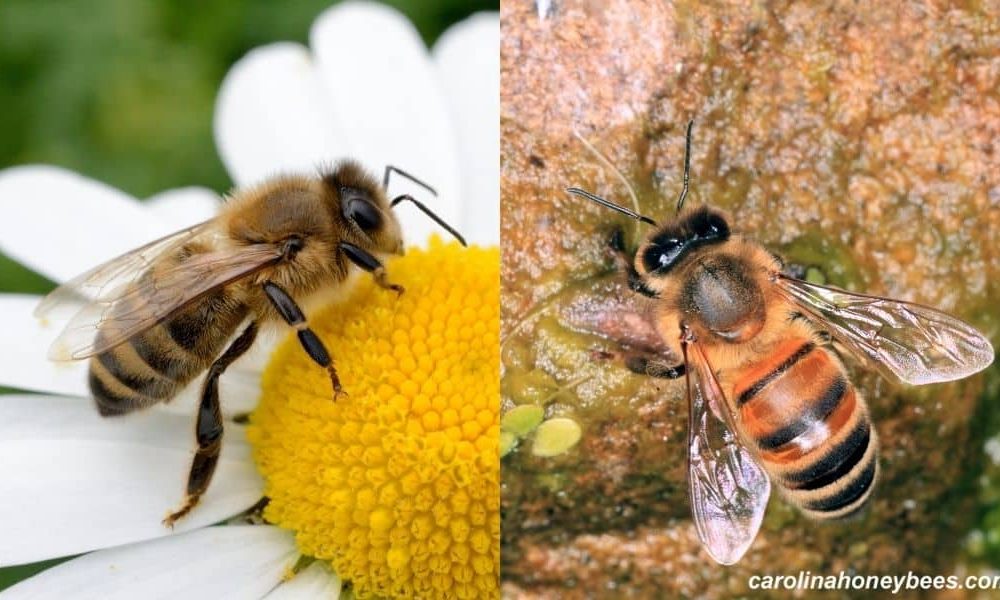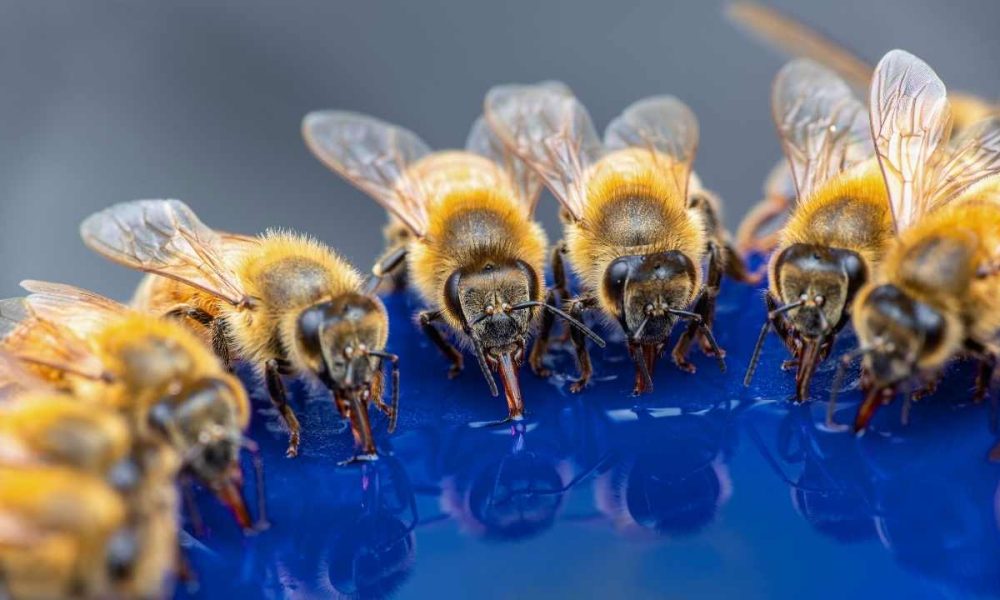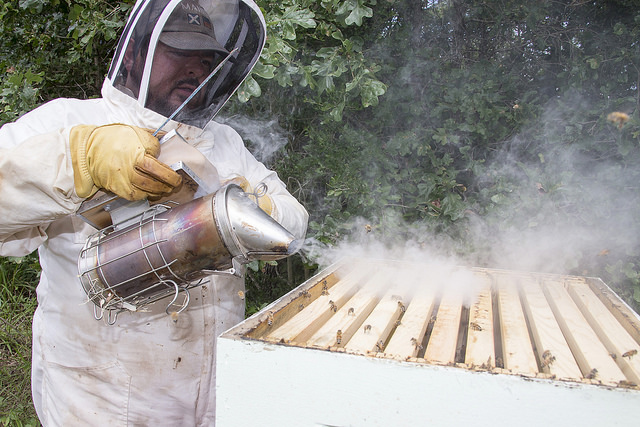
Are you feeling stressed and overwhelmed by the hustle and bustle of daily life? Do you crave a relaxing hobby that also contributes to the environment and community? Look no further than beekeeping. Bees symbolize hard work, dedication, and selflessness – all qualities that are admired in our society. By embracing beekeeping, not only will you find a calming escape from your busy life, but you will also be serving your local ecosystem.
Beekeeping is an ancient practice with modern-day benefits. From the sweet reward of harvesting your own honey to the satisfaction of contributing to the crucial role bees play in pollination, this hobby offers something for everyone. And don’t worry if you’re new to beekeeping; understanding the basics is easy with a little bit of research and guidance. With proper management techniques, you can ensure a thriving colony while experiencing the meditative buzz of these fascinating creatures. So why not join the buzzing community of beekeepers today?
The Benefits of Beekeeping
You’ll be amazed at all the positive effects keeping bees can have on your life, from improving your mood to enhancing your sense of purpose. Beekeeping is not only a rewarding hobby but also has numerous health benefits. The process of working with bees and harvesting honey can reduce stress and anxiety levels, leading to a more relaxed state of mind.
In addition to the personal benefits, beekeeping also has an environmental impact. By providing a habitat for bees and promoting their pollination activities, you are playing an active role in preserving the ecosystem. As you tend to your hives and watch them thrive, you will gain a deeper appreciation for the natural world around us. Understanding the basics of beekeeping is crucial before diving into this hobby headfirst.
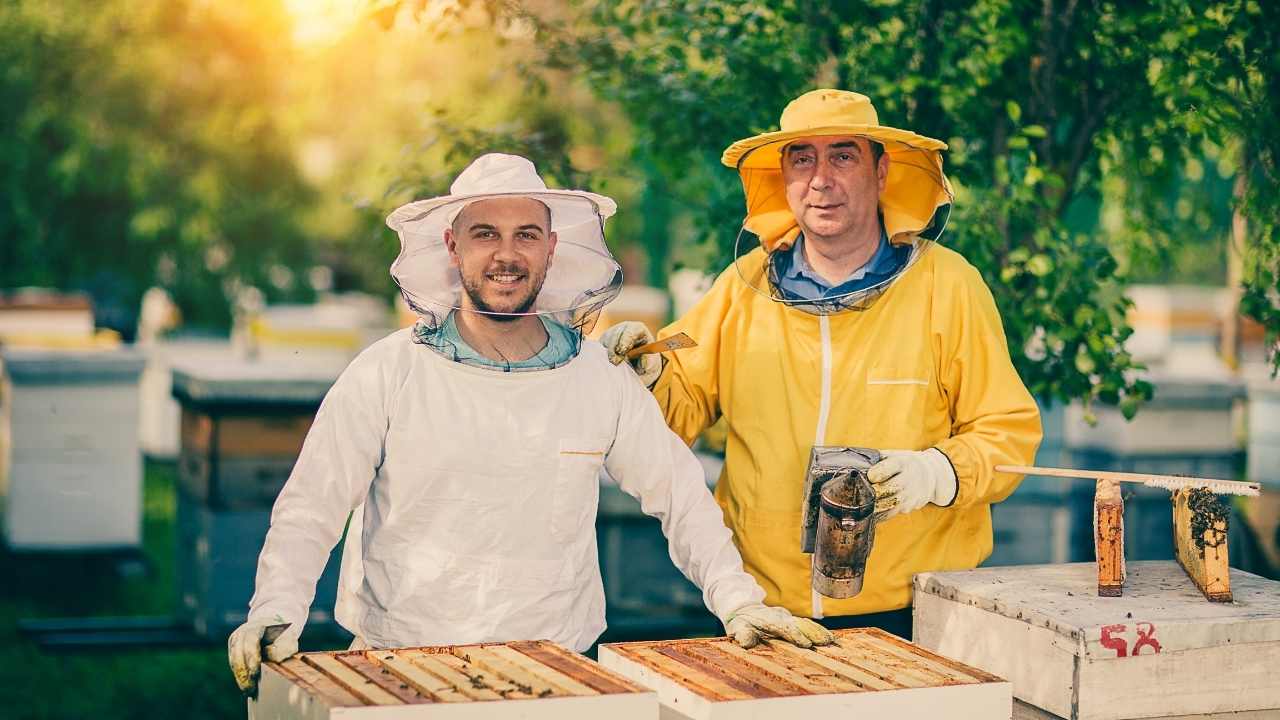
Understanding the Basics of Beekeeping
To get started with beekeeping, it’s important to know the fundamentals that will set you up for success in your new adventure. One of the first things you’ll need is proper beekeeping equipment. This includes a hive, frames, a smoker, and protective gear such as gloves and a veil. Be sure to invest in high-quality equipment to ensure the safety and health of both you and your bees.
Speaking of safety, there are also some important beekeeping safety precautions to keep in mind. Always wear protective clothing when working with your bees, including a full suit if possible. Keep an EpiPen on hand in case of allergic reactions and avoid wearing strong perfumes or scents that may agitate the bees. With these basics under your belt, you’re ready to move on to managing your bee colony and enjoying all the benefits that come with this rewarding hobby!
Managing Your Bee Colony
To manage your bee colony effectively, you need to focus on monitoring your hive regularly. This means conducting regular inspections and keeping track of the health and behavior of your bees. Another key aspect is preventing and treating diseases that can affect your hive, such as varroa mites or foulbrood. Finally, maintaining your hive by ensuring it has adequate space, ventilation, and food will help keep your bees healthy and productive. By staying on top of these tasks, you can ensure a thriving bee colony and a successful honey harvest.
Monitoring Your Hive
As you observe the activity around your hive, the peaceful hum of bees and the sight of them entering and exiting can transport you to a serene garden oasis. Monitoring your hive is an essential part of beekeeping that ensures the health and productivity of your colony. Here are some things to keep in mind as you monitor:
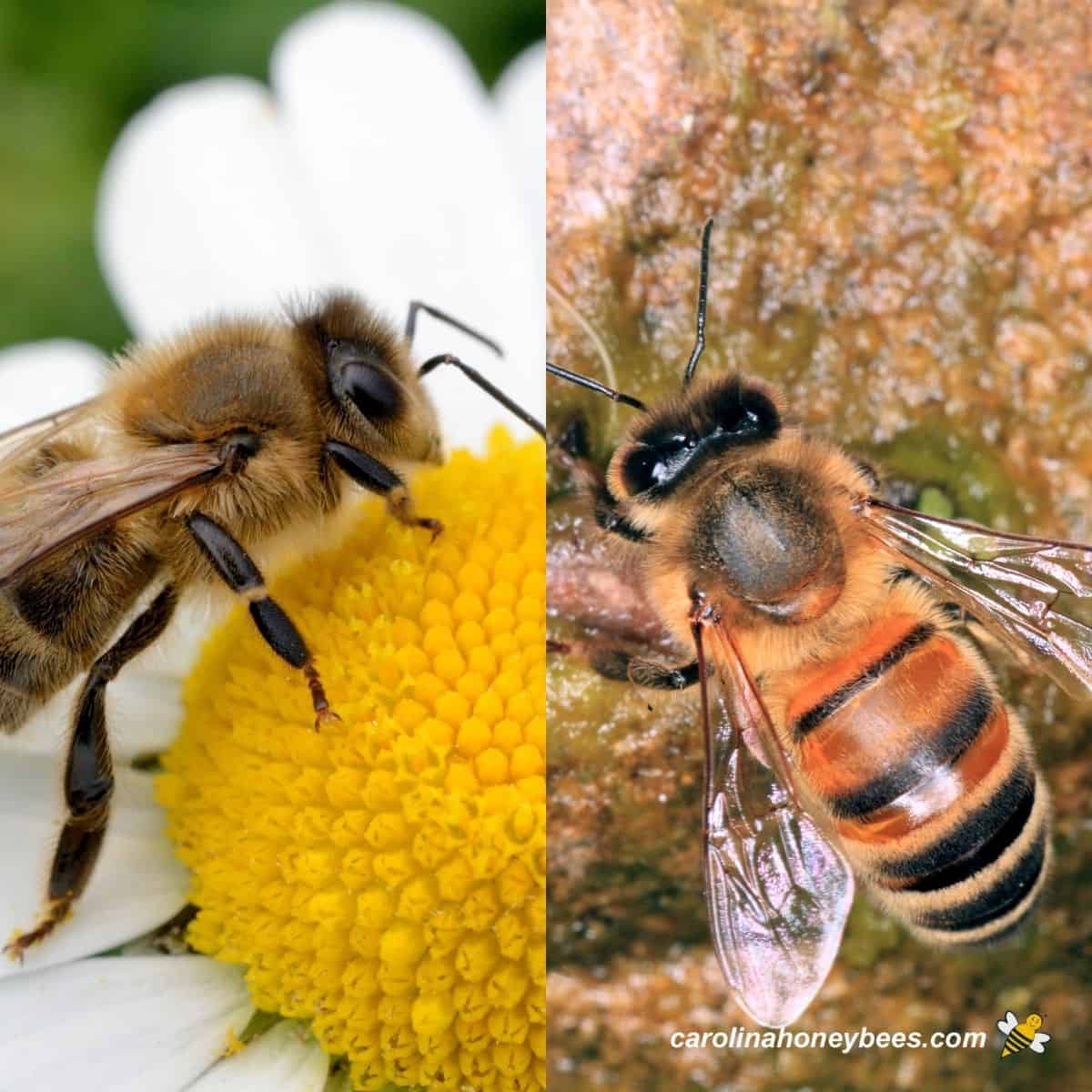
- Look for queen activity: A healthy queen is essential for honey production, so check that she is laying eggs and moving throughout the hive.
- Check for disease: Keep an eye out for signs of bacterial or viral infections like deformed wings or unusual behavior from individual bees.
- Monitor food stores: Bees need food to survive, so make sure they have enough honey and pollen stored in their combs.
- Observe population size: From season to season, populations can fluctuate, so be aware of any changes in bee numbers.
Monitoring your hive helps prevent issues before they become larger problems down the road. By keeping an eye on these four key areas, you’ll ensure happy and productive bees who will reward you with delicious honey year after year.
To maintain a healthy colony, it’s also important to prevent and treat diseases early on. Regular monitoring can help identify potential issues before they escalate into full-blown outbreaks that could threaten your entire colony’s well-being.
Preventing and Treating Diseases
Are your bees healthy and disease-free? It’s crucial to ensure that the hive is free of any diseases as it can spread rapidly and lead to a decline in bee population. Common bee diseases include American Foulbrood, Nosema, Varroa Mites, and Chalkbrood. Regular hive inspections are vital for detecting these diseases early on. Keep an eye out for signs such as abnormal brood patterns or dead larvae inside the cells.
Preventing and treating these illnesses involve proper bee health management. Maintaining a clean hive and equipment is one way to prevent the spread of diseases, while also providing enough food and water for your bees can improve their overall health. Treating infected hives may require the use of chemicals or natural remedies, so it’s essential to research and consult with experienced beekeepers before administering any medication. By following best practices in beekeeping, you can keep your hive healthy and thriving for years to come.
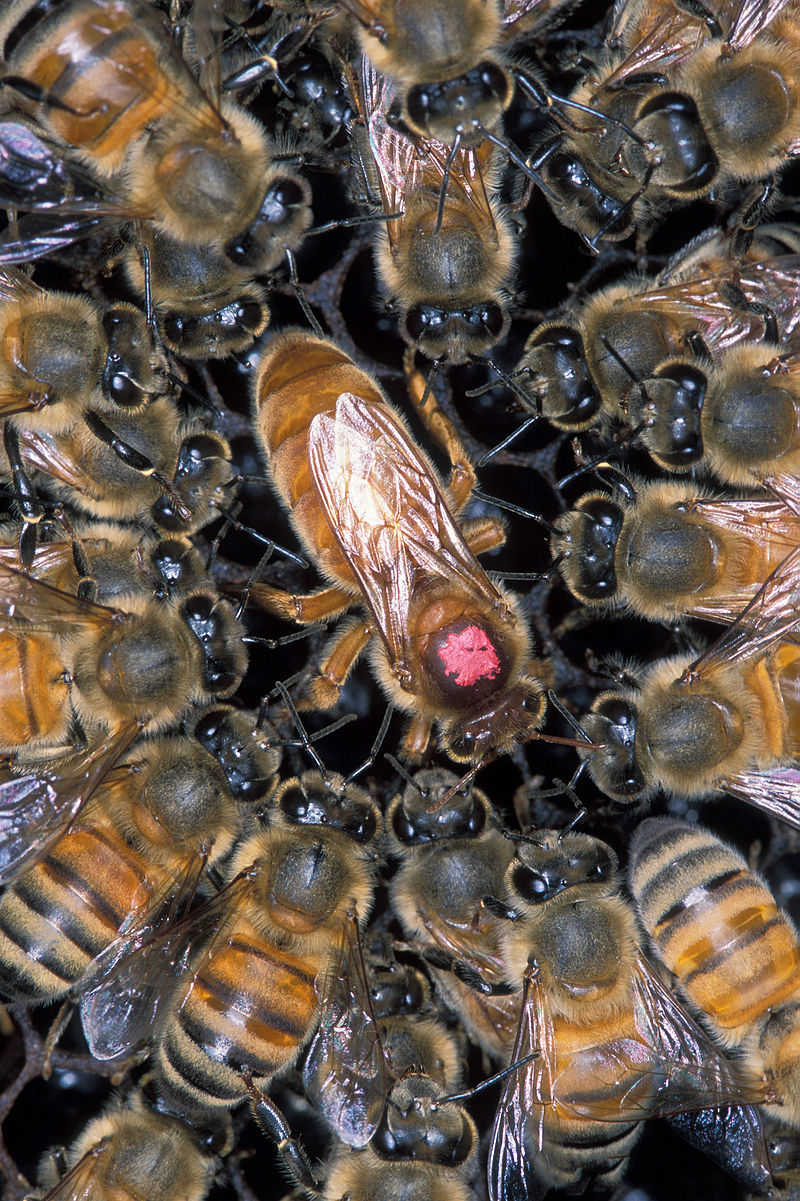
Looking after your bees doesn’t stop at preventing diseases; maintaining a well-kept hive is also necessary.
Maintaining Your Hive
Keeping your hive in good condition is like tending to a cozy cottage, where everything has its place and the occupants are content. Regularly checking for honey production and maintaining the hive ensures that your bees have a comfortable home, which can lead to increased productivity and better quality honey.
To maintain your hive, start by inspecting it every couple of weeks. Look for signs of damage or decay, such as cracks in the wood or mold growth. You should also check the frames to ensure they are clean and free from pests like wax moths or varroa mites. Additionally, make sure there is an adequate supply of food for your bees by checking their honey stores regularly.
As you tend to your hive and keep it in good shape, you’ll be rewarded with a thriving colony that produces delicious honey. In the next section, we’ll discuss how to harvest this sweet reward from your hardworking bees.
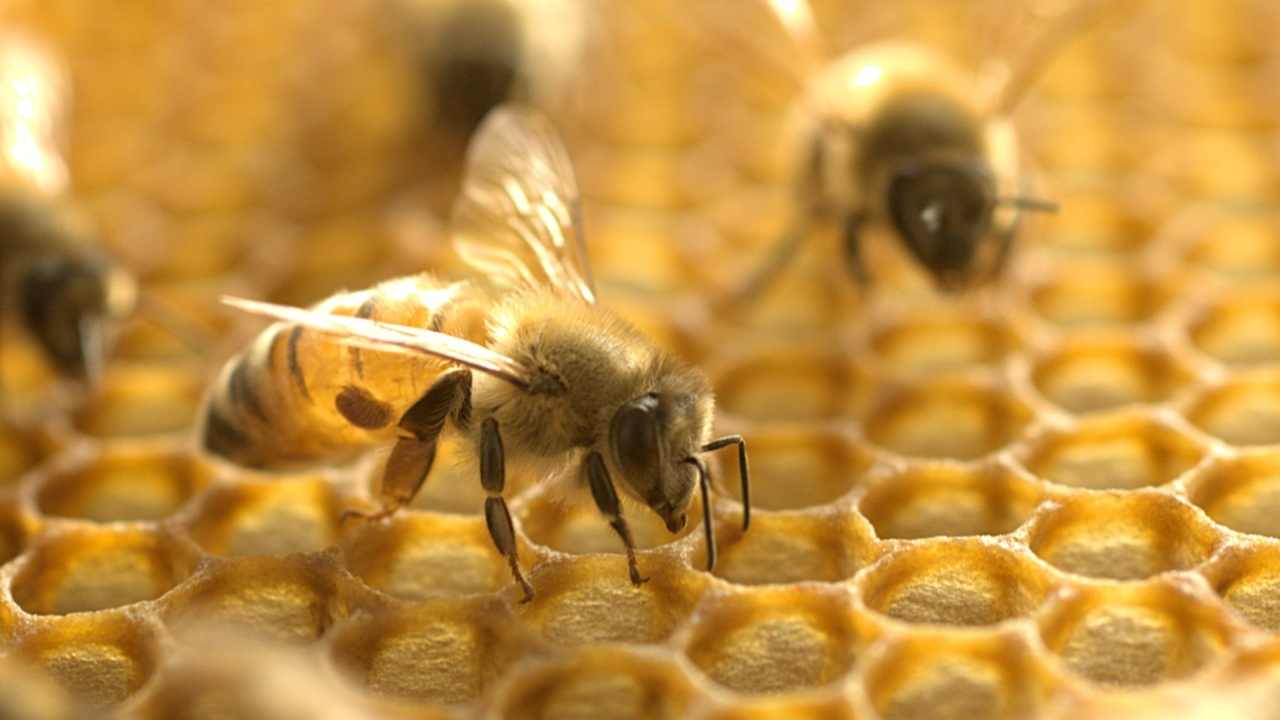
Harvesting Your Honey
It’s time to reap the sweet rewards of all your hard work – harvesting that honey! Here are some tips on how to do it successfully:
-
Honey Extraction: Once you’ve removed the frames from your hive, use a hot knife or uncapping tool to remove the wax caps from each cell. Then, place the frames in an extractor and spin them at a moderate speed until all the honey has been extracted from both sides of the comb. Collect the honey in a clean bucket with a strainer on top to filter out any remaining bits of wax or debris.
-
Different Methods of Honey Harvesting: There are several ways to extract honey from your frames, including using crush-and-strain methods or cut-comb methods. Crush-and-strain involves removing the comb from the frame and crushing it before straining out pure honey. Cut-comb is when you simply cut off small sections of comb filled with honey and package them for sale.
-
Storage Tips: Once you have harvested your honey, store it properly in a cool, dry place away from direct sunlight and heat sources. Use glass jars with tight-fitting lids to prevent moisture from entering and spoiling your precious liquid gold.
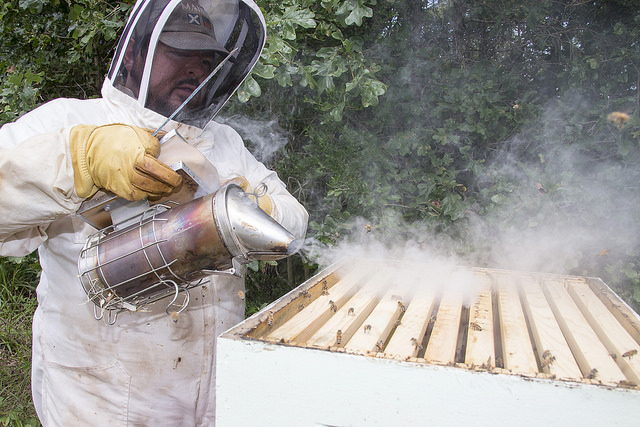
Harvesting your own honey can be incredibly rewarding, especially after all the hard work you put into maintaining your hive throughout the year. Not only do you get to enjoy delicious homemade sweetness but also contribute positively towards our environment by supporting pollinators like bees!
Contributing to the Environment
Now that you’ve harvested your honey, it’s time to think about the bigger picture and how beekeeping can contribute to the environment. One of the most important benefits of beekeeping is honey production, but did you know that bees also play a crucial role in pollination? By keeping bees, you are not only reaping the rewards of delicious honey but also helping to sustain our ecosystem.
Bees are responsible for pollinating a vast array of plants, including fruits and vegetables. Without them, we would have a difficult time growing many of our favorite foods. By becoming a beekeeper, you are directly contributing to this process and helping to ensure a healthy food supply for generations to come. Additionally, bees help maintain biodiversity by pollinating wildflowers and other plants that serve as habitats for various animals. So not only are you benefiting from honey production, but you’re also doing your part in preserving nature’s delicate balance.
As you continue on your beekeeping journey and experience all the benefits it has to offer, consider joining the larger community of beekeepers who share your passion for these amazing creatures. Together we can continue to raise awareness about their importance while enjoying this relaxing hobby.
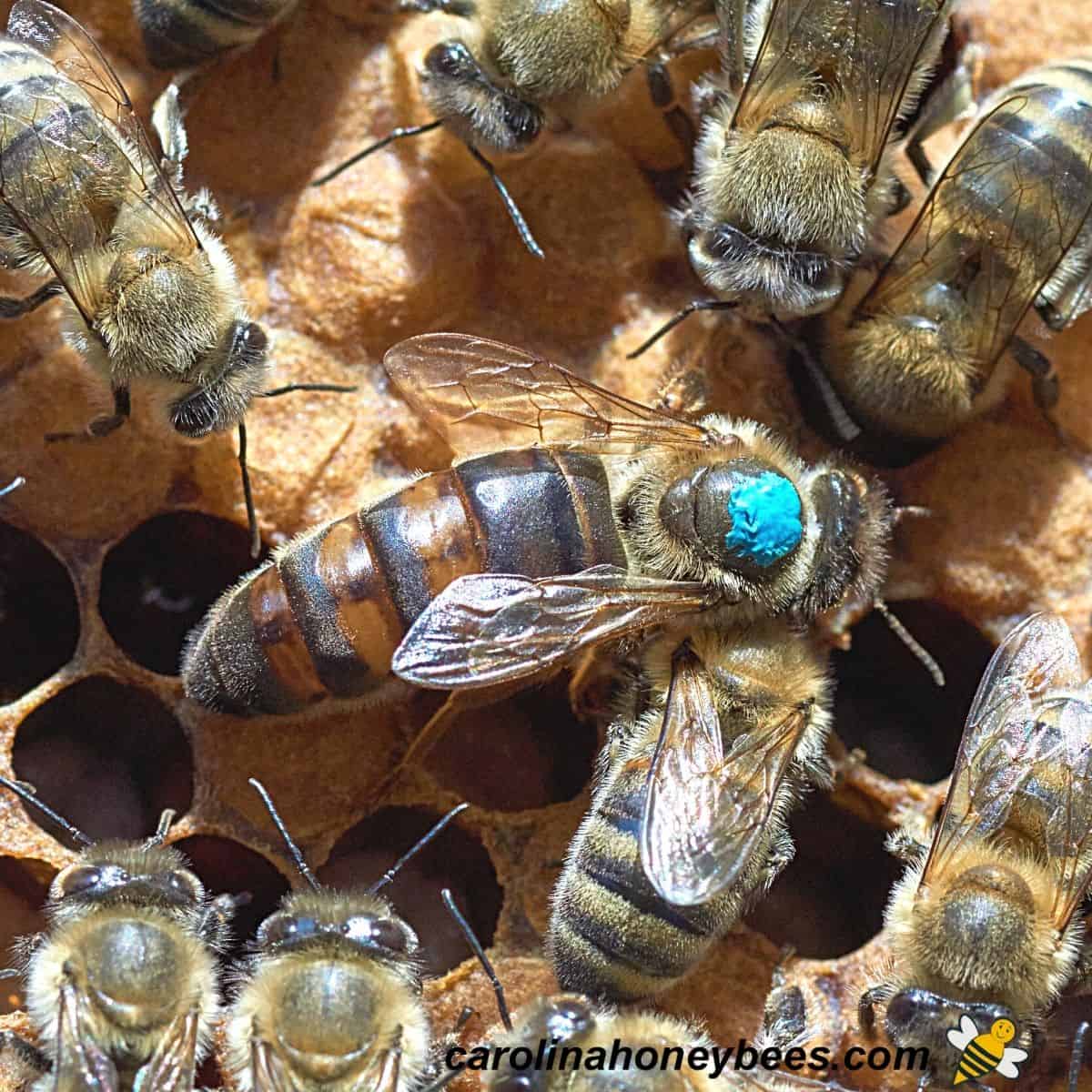
Joining the Beekeeping Community
If you’re interested in beekeeping, one great way to learn more and connect with like-minded individuals is by finding local beekeeping groups. These groups offer a wealth of knowledge and experience, as well as the opportunity to share tips and advice with fellow hobbyists. Additionally, participating in beekeeping events and festivals can be a fun way to further immerse yourself in the community and learn new skills.
Finding Local Beekeeping Groups
You’ll be surprised at how easy it is to connect with like-minded individuals by joining a local beekeeping group, creating new friendships and expanding your knowledge of these fascinating pollinators. Here are some tips for finding local beekeeping groups:
- Search online: Look for Facebook groups or other online forums dedicated to beekeeping in your area.
- Contact local apiaries: Reach out to nearby apiaries or honey producers and inquire about any local beekeeping groups they may know of.
By connecting with fellow beekeepers, you’ll not only gain access to valuable resources but also receive support and encouragement as you embark on this exciting hobby. Plus, being part of a community that shares your passion can help reduce stress and promote relaxation.
As you immerse yourself in the beekeeping community, don’t hesitate to ask questions and share your experiences. In the next section, we’ll discuss how sharing tips and advice can further enhance your journey as a beginner beekeeper.
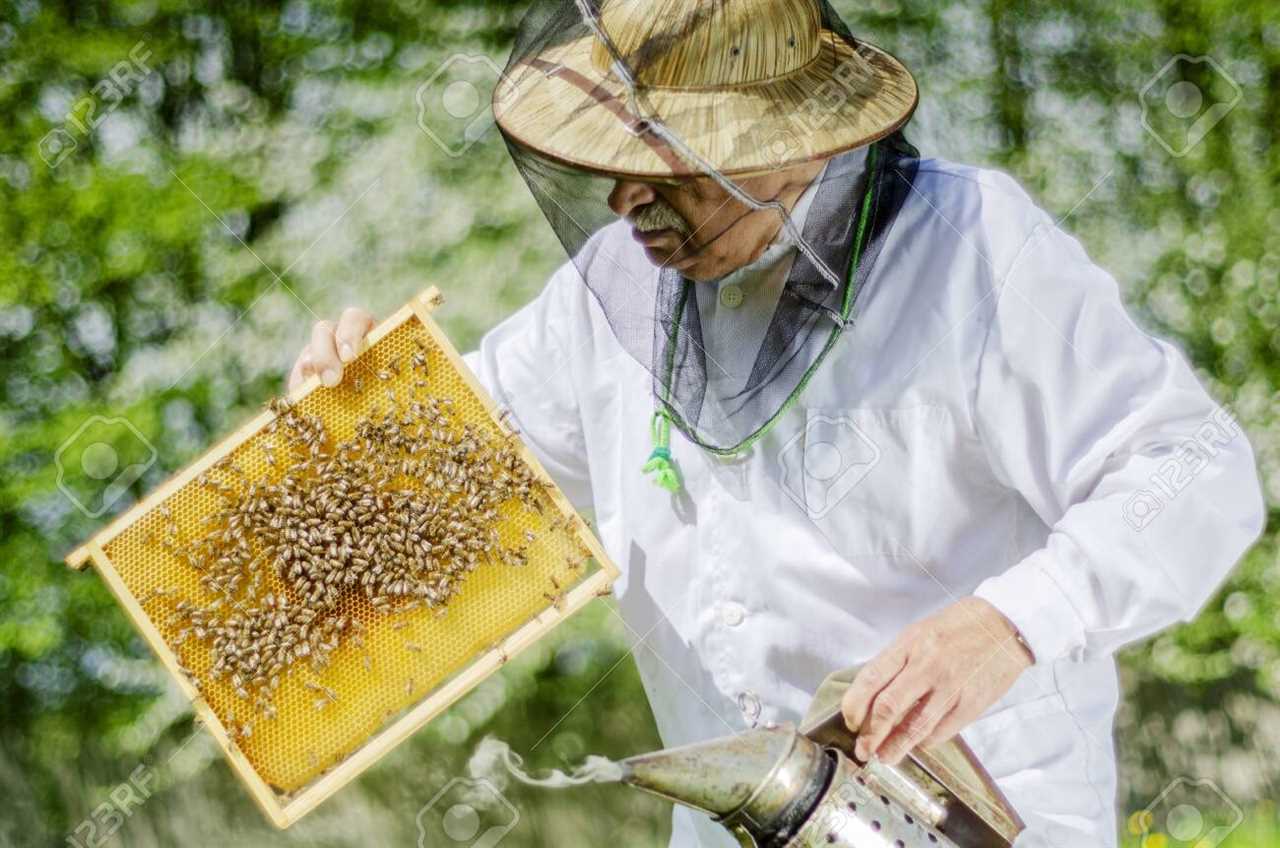
Sharing Tips and Advice
In this section, we’ll talk about how sharing tips and advice with fellow beekeepers can enhance your journey and deepen your knowledge of these fascinating pollinators. One way to do this is by joining a local beekeeping group where you can connect with experienced beekeepers who are always happy to share their knowledge. You can learn about the best equipment for your hive, how to attract bees through bee-friendly gardening techniques, and even get advice on how to handle common problems that arise while taking care of your bees.
Sharing tips and advice not only helps you improve as a beekeeper but also strengthens the community around you. Beekeeping groups often organize workshops or meetings where members share their experiences and exchange ideas. Additionally, many clubs have online forums or social media pages where members ask questions and offer support from afar. By connecting with fellow hobbyists, you’ll be able to enjoy all the benefits of raising bees while also contributing to a more sustainable future for our planet’s ecosystems. As we move onto the next section about participating in beekeeping events and festivals, remember that sharing is caring!
Participating in Beekeeping Events and Festivals
Attending beekeeping events and festivals can be a valuable opportunity to engage with like-minded individuals and expand your knowledge of these fascinating pollinators. These gatherings typically include workshops, presentations, and exhibits that offer insight into the world of bees and beekeeping. You can learn about the different types of honey, how to extract it from hives, and even participate in beekeeping competitions.
At these events, you’ll also find vendors selling everything from bee-themed crafts to equipment for starting your own hive. It’s a great chance to connect with local apiarists who can share their expertise and help guide you on your journey as a beekeeper. Whether you’re just starting out or have years of experience under your belt, participating in beekeeping events is sure to provide inspiration and new insights into this rewarding hobby.
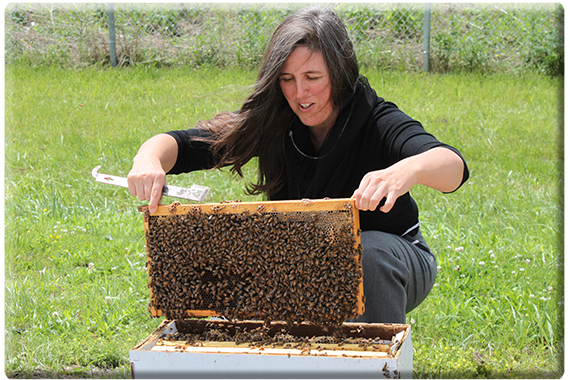
Frequently Asked Questions
What are some common challenges that beekeepers face?
As a beekeeper, you may face some common challenges when it comes to queen management and hive maintenance. One anticipated objection could be the fear of accidentally harming the bees while performing these tasks. However, with proper education and training, you can learn how to safely manage your hives without causing harm or stress to your bees. Queen management involves ensuring that your colony has a healthy and productive queen who is capable of laying enough eggs for the entire hive. This requires regular checks and possible replacement if necessary. Hive maintenance includes tasks such as inspecting for pests and disease, providing adequate food and water sources, and maintaining proper ventilation within the hive. While these tasks may seem daunting at first, they are essential for keeping your bees healthy and productive in the long run. With patience, care, and attention to detail, you can overcome these challenges and enjoy all the rewards that come with beekeeping as a relaxing and fulfilling hobby.
How do you prevent your bees from swarming?
To prevent your bees from swarming, you can focus on queen management and swarm prevention. Queen management involves regularly checking the health and productivity of your queen bee and replacing her if necessary. This helps keep a strong and stable hive, reducing the likelihood of swarming. Swarm prevention techniques include providing plenty of space for your bees to expand their colony, ensuring they have enough food, and monitoring the development of drone brood which triggers swarming behavior. Additionally, some beekeepers use methods such as splitting the hive or removing queen cells to prevent swarming altogether. By implementing these strategies for both queen management and swarm prevention, you can maintain a healthy and thriving bee colony while avoiding the stress and challenges that come with unexpected swarms.
Can you keep bees in an urban setting?
If you live in an urban setting, you can still keep bees! Rooftop hives are becoming increasingly popular, and many cities have community gardens where beekeeping is allowed. Before getting started, make sure to check with your local government for any regulations or permits required. Also, consider the space and resources needed for keeping bees – they require a good amount of sunlight and access to water. With proper planning and care, urban beekeeping can be a fulfilling hobby that not only benefits you but also helps support the environment by providing pollinators for nearby plants.
How do you identify and treat common bee diseases?
As a beekeeper, it’s important to be aware of the common diseases that can affect your bees. One way to do this is through diagnostic techniques such as regularly inspecting your hive for signs of illness and monitoring the behavior of your bees. If you do spot an issue, there are medication options available such as antibiotics or organic treatments like essential oils. It’s crucial to act quickly when treating a disease in order to prevent it from spreading throughout the colony. As a responsible beekeeper, staying informed about these potential illnesses can help ensure the health and well-being of your bees, ultimately leading to a more rewarding experience for both you and your buzzing friends.
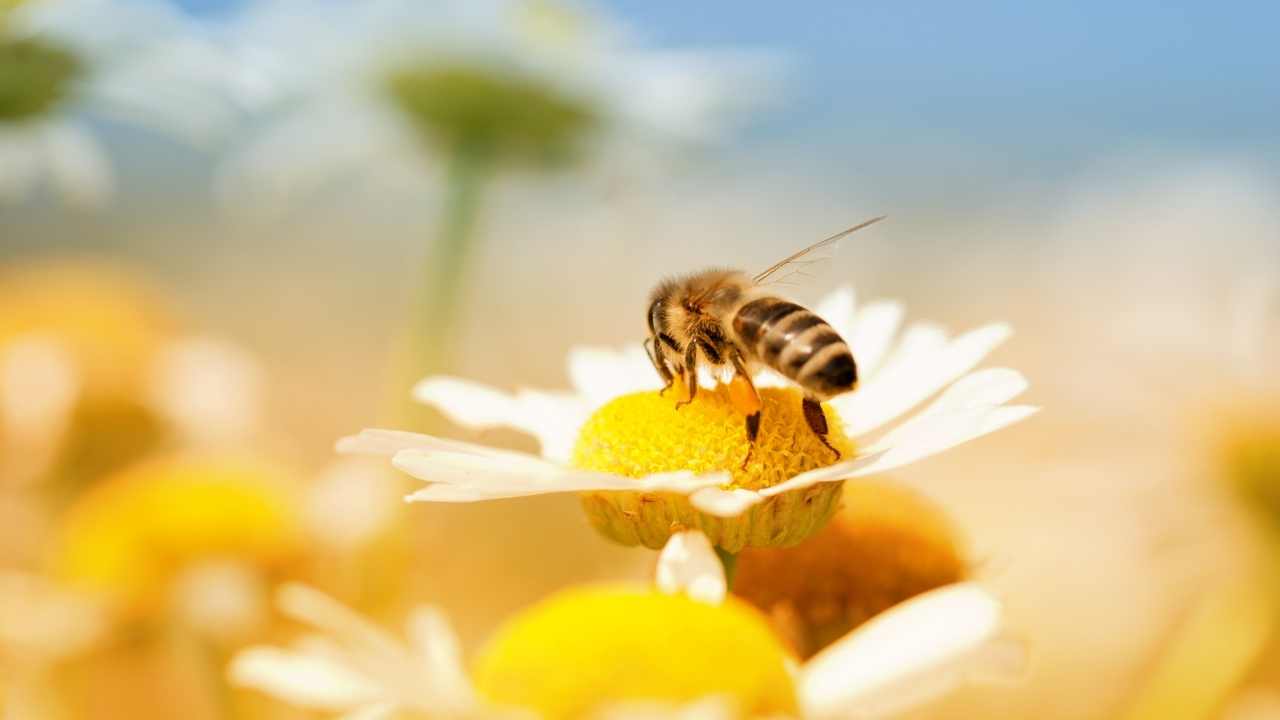
What types of flowers and plants are best for attracting bees to your garden?
When it comes to attracting bees to your garden, flower selection is key. Choosing plants that are pollinator friendly is essential for creating a welcoming environment for these important creatures. Some great options include lavender, sunflowers, and zinnias. Be sure to plant a variety of flowers that bloom throughout the season, as this will provide food for bees all year round. Additionally, consider incorporating some native plants into your landscaping, as they are often more attractive to local bee populations. With the right flower selection and pollinator friendly landscaping practices, you can create a beautiful garden that also supports the health of our planet’s vital bee populations.
Conclusion
Congratulations! You have made it to the end of this informative article about beekeeping. By now, you should know that beekeeping is not only a relaxing and rewarding hobby, but also an important way to contribute to the environment.
As you reflect on what you’ve learned, remember that beekeeping is like a dance with nature – every step counts and every move has its own rhythm. It requires patience, dedication, and most importantly, respect for these amazing creatures who play such a crucial role in our ecosystem. So don’t be afraid to embrace your inner beekeeper and start your own colony today!
In conclusion, whether you’re looking for a new hobby or simply want to be more mindful of the environment around you, beekeeping is definitely worth considering. With its many benefits and rewarding experiences, it’s a great way to connect with nature while also making a positive impact on our planet. So why not give it a try? As the saying goes: "the bee’s knees" – meaning something excellent or outstanding – well that could be you as a proud beekeeper!
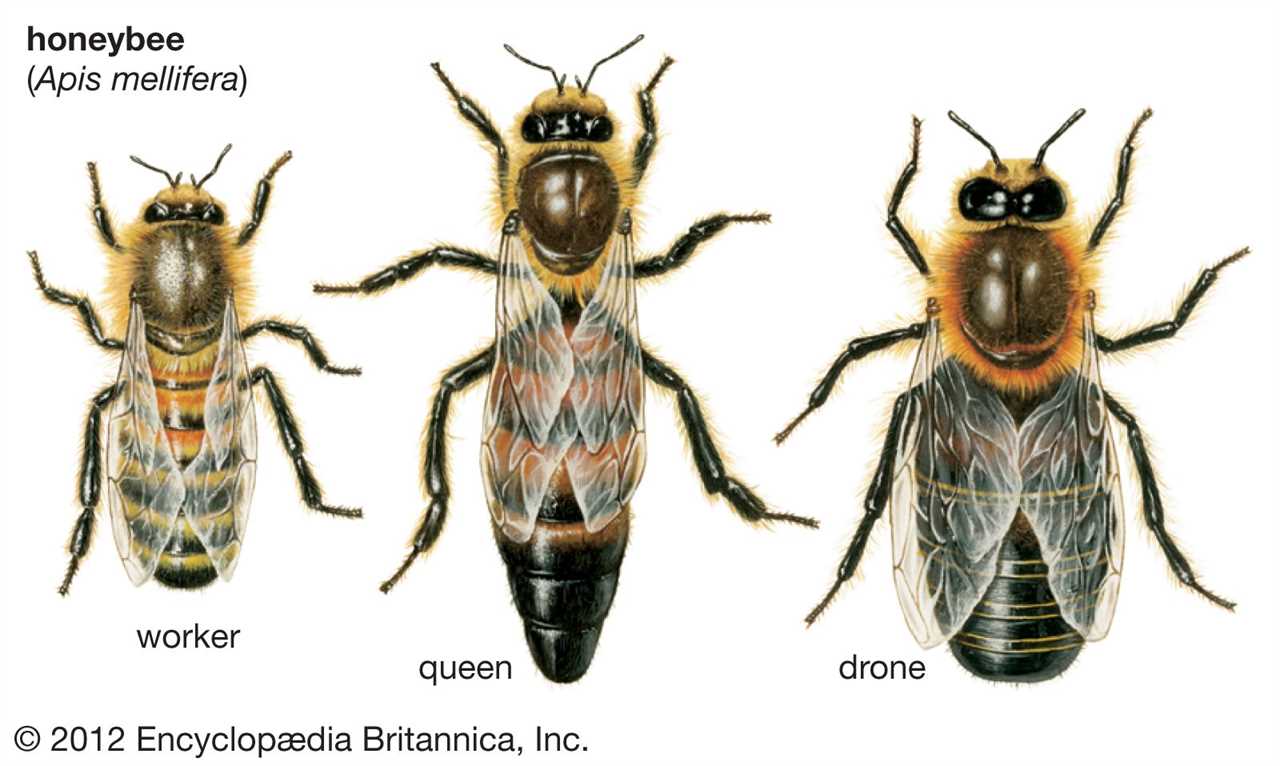

Roger Thomas is a seasoned beekeeper and hive architect with a deep-seated passion for sustainable living. His fascination with bees has shaped his professional career, giving him practical and theoretical expertise in bee behavior, colony health, and optimal hive conditions. Roger’s technical skills shine in his bespoke hive creations that cater to the specific needs of diverse bee species, while his sustainable practices promote environmental balance and the wellbeing of the bee population.
As he continues his journey in beekeeping, Roger has become a dedicated advocate for responsible practices and an insightful educator in his field. His posts aim to inspire new beekeepers, underline the importance of sustainability, and showcase the remarkable contribution bees make to our ecosystem. Roger invites you to join him as he delves into the world of bees and the rewarding, honey-sweet art of beekeeping.
